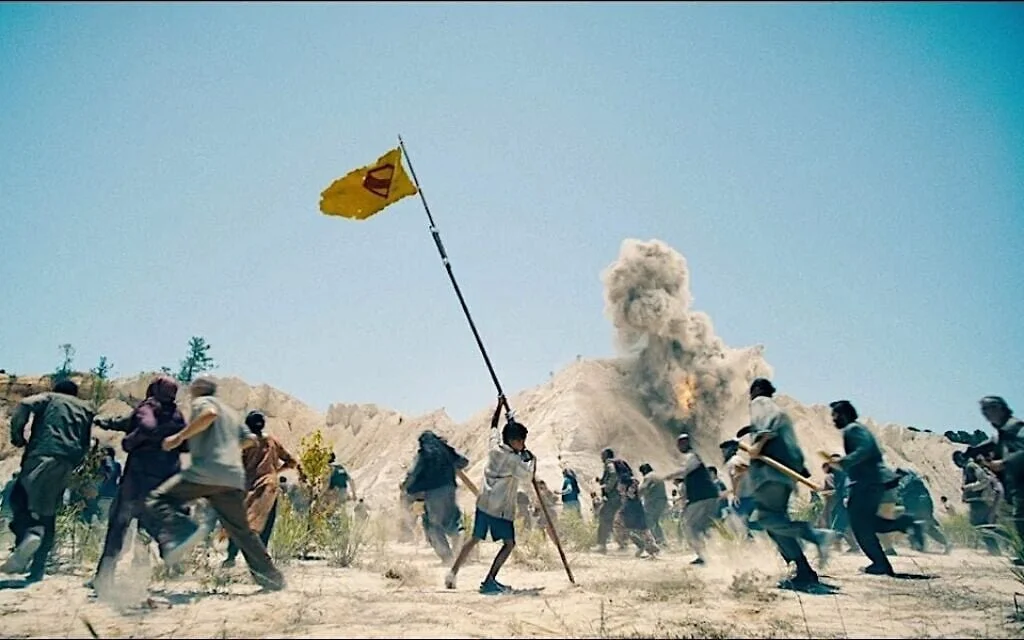Symbolism of Superman
Sophie Sukendro
James Gunn’s “Superman,” released July 11, has become one of the year’s most controversial films. Branded “SuperWoke” by critics and the target of boycotts across political lines, the movie has reignited debates about immigration, cultural identity and foreign policy. While Gunn has repeatedly emphasized that the film is fictional, public backlash reflects broader tensions in society, particularly around immigration and world conflicts.
At the center of the debate is Superman’s identity as an immigrant. Gunn described the character as “the story of America,” noting Superman’s identity as an immigrant and that his narrative emphasizes “basic human kindness.” This framing connects to Superman’s origins in 1938, when Jerry Siegel and Joe Shuster created him as a figure of hope during rising fascism in Europe. Yet critics argue that highlighting Superman’s immigrant background subjects a classic American icon to the “liberal agenda.”
“We don’t go to the movie theater to be lectured to, and to have somebody throw their ideology onto us,” said Kellyanne Conway, President Donald Trump’s former senior adviser. Trump’s official social media posted an edited film poster featuring Trump’s face on Superman’s body captioned, “The Symbol of Hope. Truth. Justice. The American Way. #Superman Trump.” Some fans have gone further, threatening to boycott the franchise, citing Hollywood’s history of perceived liberalism.
The plot added another layer of controversy. Superman confronts Lex Luthor, a billionaire arms dealer backing Boravia, a powerful nation invading smaller Jarhanpur. Boravia is supported by the United States government, criticizing the U.S.’s complicity in foreign interventions. Some audiences instinctively drew comparisons to the Russia–Ukraine conflict and the Israel–Palestine conflict, though the latter was a more prominent theory.
However, Gunn denied that the film was meant as commentary on the Middle East, stating, “When I wrote this the Middle Eastern conflict wasn’t happening. It really is fictional." He explained that the intent was to portray a despotic nation invading a weaker one, not to allude to current global conflicts. Despite this, some viewers still find the parallels uncomfortably pointed.
Feeling indicted by fiction doesn’t prove the film’s bias so much as it reflects our own awareness of real-world inequalities. To take offense at the allegory and its theoretical parallels is to acknowledge, consciously or not, that the storyline resonates with reality. It exposes our own unconscious recognition of power dynamics and wrongdoing. Film, like any art form, has always been subjective. So when a story provokes anger or offense, it’s not the story speaking, it’s our conscience.
Superman has always been political, from his 1938 debut as a champion against fascism to his modern-day interpretations. The fact that he continues to provoke controversy nearly 90 years later demonstrates the enduring weight of his cultural symbolism. The broader takeaway is how fractured our cultural landscape has become. The film may not have been written as commentary, but the way audiences reacted is a commentary on society itself. Superhero movies have always revolved around power struggles: control-hungry villains, weaker forces who resist, and heroes who fight to restore balance. For decades, audiences accepted these plots as symbolic—a classic superhero plot. Today, those same plots are quickly linked to real world conflicts. This shift reflects both a heightened political consciousness and a level of polarization that makes even fiction a source of division.
